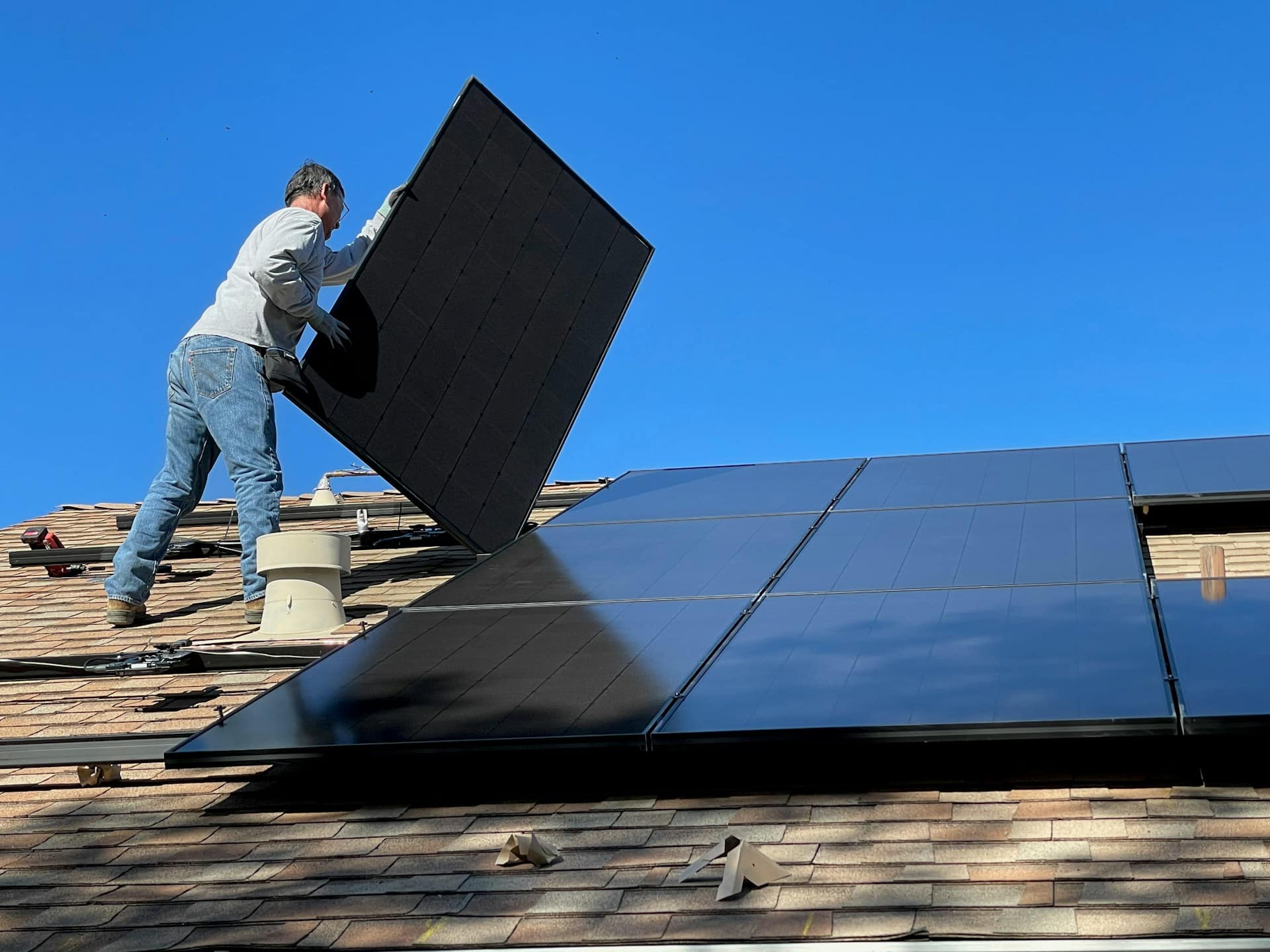This article may contain affiliate links. We may receive a commission for purchases made through these links. Privacy Policy.
Buying a home is a huge step for many people. When looking at the numerous expenses that go along with buying a home, it can be difficult to know what to buy and what not to buy. Should you buy a home warranty? Should you get home insurance?
Let’s save the topic of home warranty for another day. But even Dave Ramsey suggests that home insurance is a must for homeowners. It will help you in case the unthinkable happens. And, there are ways it can also end up saving you money.
Here are some reasons why you should get homeowner’s insurance.
Most Mortgage Companies Require It

The first important thing to consider is that if you have a home loan, lenders require home insurance. And, while not a state requirement, mortgage companies require proof of insurance in order to complete any real estate transaction. This coverage protects their investment in case of fire or other damage. The amount of insurance required is dependent on the value of the property and the cost of rebuilding.
Lev Barinskiy, CEO of SmartFinancial, adds, “[Home insurance] is a wise coverage to have even if you’ve paid off your mortgage and it’s no longer required. Anyone can be at risk of suffering losses to their home.”
Barinkskiy continues, “There are many other things beyond your property that are covered under home insurance. For instance, you may be covered up to $500 for food spoilage due to an electricity outage.”
While many lenders offer insurance that is easily added to your monthly mortgage payments, you will save money by opting for a private insurance agent instead.
Most agencies provide a quote within a day, but you will want to give yourself plenty of time to shop around for the best policy for you. And keep in mind–if your home is not adequately insured, most lenders will automatically add an insurance policy to your mortgage payments.
P.J. Miller, Partner at Wallace & Turner Insurance, also adds, “There are also situations you may not have thought of when your homeowner’s insurance will kick in. For example, if you have a child that is a student living in a campus dorm room, if they experience a burglary or similar type of loss, most homeowner policies will extend liability and personal property protection – this is considered “off premise” coverage.”
“The type of coverage you need will depend on the value of your home, personal property, unique or expensive items, and personal liability to determine the right homeowner’s policy. An insurance agent can customize a policy, so be prepared to provide extensive information so they can quote the best rate for a policy,” Miller continues.
It Protects Your Home from Damages

In addition to it being a requirement for most homeowners, your home insurance policy can also protect you from unexpected damages to your home. Many policies can layout either a cost-by-cost repair policy or a whole cash value policy. Make sure to do your homework to ensure you have the proper coverage.
Damage to your home can be very expensive, especially if the structure is destroyed or left uninhabitable. For example, a new roof after a hailstorm can be very expensive, but you will have less out of pocket costs if you have insurance.
Also, make sure that all structures on your property, such as sheds or barns are covered by your insurance. These are often overlooked but carry a high replacement cost should they get damaged.
Amanda Doss, Insurance Analyst at QuoteWizard, shares some insight. She says “the last thing you want to spend your life’s savings on is repairing your floors or getting a new roof. If you live in an area where natural disasters happen yearly, you don’t want to go without [home insurance].”
Doss continues, “[home insurance] includes liability protection too and will act as a cushion if you are forced to leave your damaged home. Some lenders will even require you to have homeowner’s insurance before they give you a mortgage.”
It’s important to know that while home insurance will help cover expenses in case of an emergency, it will not cover everything.
Homeowners are required to cover a deductible before the insurance kicks in. Deductibles come in all shapes and sizes, but most homeowners use a $500-$1,000 deductible. The remaining costs will be covered by the insurance company once the deductible is met.
Keep in mind that your deductible directly relates to your monthly premium. The more that you are willing to pay out of pocket for repairs, the lower your premium will be.
Also, while insurance protects you in case your home gets damaged, it doesn’t cover normal home wear and tear. And in the event of a home claim, the first thing most insurance companies ask is, “Could this have been avoided?” – especially with water damage. So make yearly inspections with your HVAC and plumbing company a priority.
It Protects You from Loss

In addition to protecting your home from damage, your homeowner policy protects you from loss due to theft. Items such as electronics and furniture are usually covered automatically, but be sure to discuss your specific situation with your insurance agent to see what is covered.
And, most policies will cover these items even if they are not in your home at the time. For example, if you have a guitar stolen from your car, your homeowner’s insurance may cover it.
High-value personal items such as art, guns and jewelry, require a little more work. To ensure you receive the full replacement cost, you will need to add them to your policy as individually scheduled items. Keep in mind that these items usually require proof of appraisal or receipts to be counted among your assets.
And, to protect you from lawsuits, your homeowner’s insurance provides liability coverage. This protects you in case anyone gets hurt while on your property. This is a built-in feature to your policy and can cover court costs in case anyone tries to sue.
Rehoming Costs if You Lose Your Home

As mentioned before, natural disasters and fires can cause devastating damage to people’s homes. You want to make sure you have coverage for events that your area may be prone to. Areas that could experience flooding, tornadoes, earthquakes, etc. should have the proper coverage in case your home experiences these events. Having proper coverage can save you a lot of money should your home be damaged during one of these events.
Stacey Giulianti, Co-Founder and Chief Legal Officer of Florida Peninsula Insurance Company shares, “homeowners insurance is one of the most important building blocks of a family’s overall financial plan. Most policies not only cover the cost to rebuild the home after a catastrophe – fire, hurricane, or plumbing break — but offer a range of valuable protections for common risks.”
“Home severely damaged and the law requires you to comply with new building codes? Your policy will cover the costs to rebuild according to the new ordinance and law requirements,” Giulianti continues.
In the unfortunate event that your home is destroyed or left uninhabitable, home insurance can help in covering living costs. Extra living expense coverage helps in paying for temporary housing, as well as expenses such as food, laundry, and cable/internet connections while you are displaced.
You Can Save Money

While home insurance can seem like an additional expense, there are many ways that you can save money by having a homeowner’s policy. Bundling with your car insurance will often allow you to get a discount, either on your home or car insurance.
You should also check on any discounts you may be eligible for. New construction and home upgrades (smoke detectors, fire extinguishers, and energy-efficiency upgrades) can save you a lot of money in the long run.
It is also important that you talk to your insurance agent regularly and schedule a time for a policy review each year. Our lives change each year, and your insurance policy should reflect that. Also, your company may have new discounts that weren’t available when you first started your policy. Policy reviews will catch these discrepancies.
One of the most important things you need as a homeowner is home insurance. It is not only required to get most home loans, but it will save you money if the worst happens. While a good insurance agent will help tailor your policy to fit your needs, it never hurts knowing a thing or two when you walk into those meetings.
You might also be interested in: How Often Should You Replace Your Kitchen Appliances?
Brady Smith
view postBrady Smith
Brady is a writer, voice artist, podcaster and website designer. He holds a Bachelor’s Degree in Communication and specializes in crafting effective messaging designed to get results. Brady makes his home on the edge of society - close enough for good WiFi, but far enough out to not have to worry about traffic.
view post





